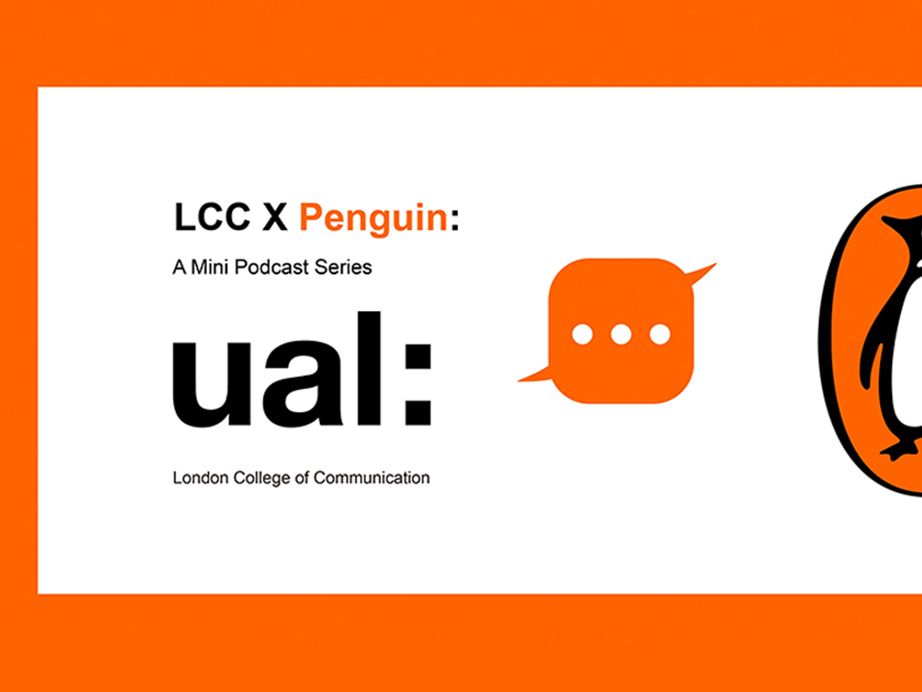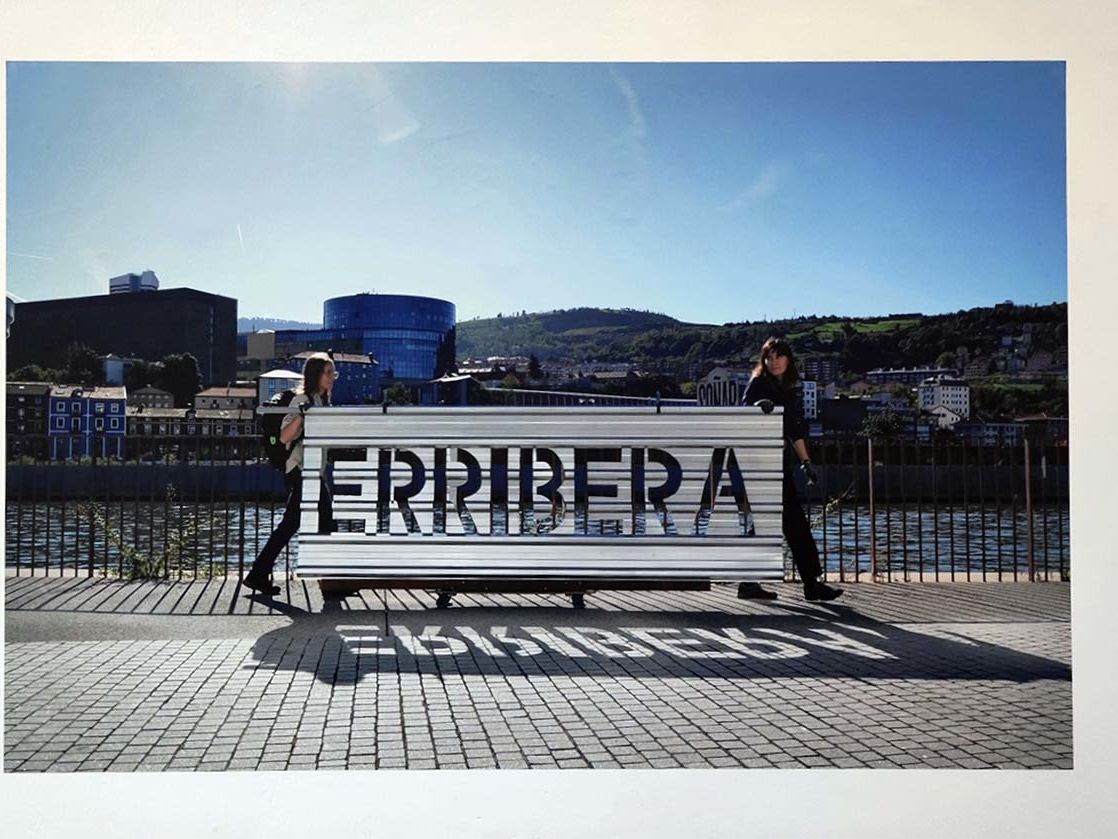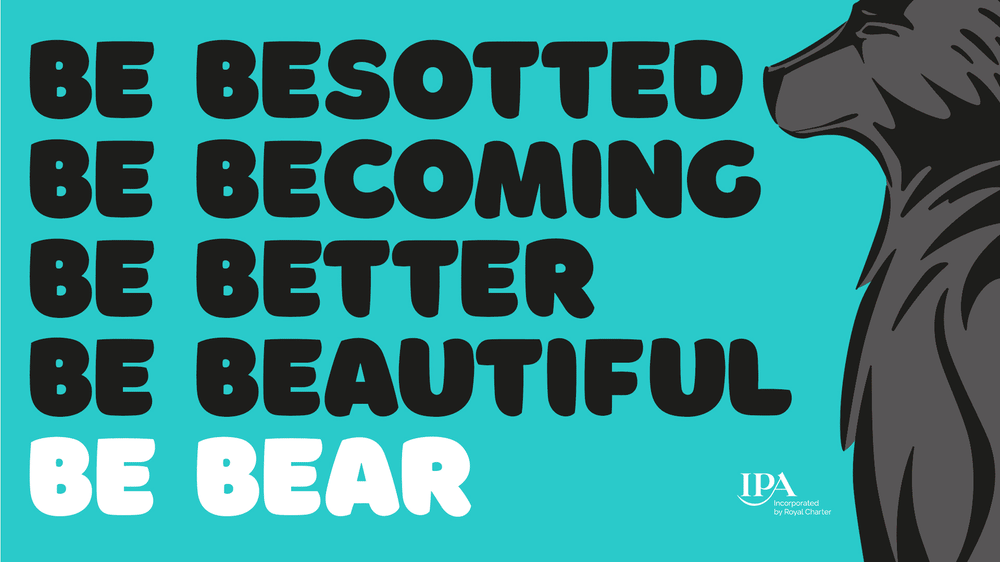
Mentoring Spotlight: Richard Afun x Paul Bramwell

- Written byChloe Murphy
- Published date 16 October 2023

London College of Communication (LCC) is home to makers, thinkers and innovators. Bringing inspiring ideas and ways of working to a range of diverse industries, we change the world around us and make a positive difference to society.
One of the ways in which we support our students to take the next step in their development is by offering vital support through our Industry Mentoring Programme. This initiative connects current LCC postgraduates and recent alumni to professionals from the creative sectors, all of whom channel profound understanding, experience and insight through opportunities that shape the journeys of those at the beginning of their careers.
Together, mentors and mentees catch up regularly to explore ideas and aspirations that are tailored to specific goals - helping students to feel more confident, informed and engaged in the professional landscape while also enabling mentors to further develop their own skill sets and form new contacts across LCC's vibrant network.
Our Industry Mentoring Programme runs alongside a programme of initiatives designed to empower our College learning community to achieve their career ambitions while contributing to a more diverse, inclusive and innovative society. Managed by our Graduate Futures team, complementary activities range from rapid review sessions and speed networking to our incubation programme, LCC Accelerate, which supports recent graduates to level-up their business ideas through practical advice and creative inspiration.
"Moulding the future of the creative industries"
Graduate Futures Manager Luminita Molico highlighted the synergetic balance of advantages that mentoring offers both mentors and mentees as they develop personally and professionally.
"Mentorship is more than a developmental tool—it's a catalyst for innovation and change," she said.
"Our Industry Mentoring Programme not only serves as a bridge between academic prowess and professional excellence but also fosters a synergetic environment where creativity and wisdom are exchanged freely. It's a win-win paradigm: mentees gain invaluable insights to leapfrog into their careers, while mentors find new perspectives that enrich their own professional journeys.
"Together, we're not just shaping careers; we're moulding the future of the creative industries."
We caught up with recent MA Advertising graduate, Richard Afun, and his mentor, media, creative and digital industry consultant Paul Bramwell, to discuss their experiences of engaging with the LCC Industry Mentoring Programme – from becoming a better listener to the value in helping early-career creatives achieve their first professional goals.
Richard Afun | MA Advertising
Richard, how did you first become interested in business and advertising?
Different experiences have led me to this point, but mainly, I think it's been down to my journey as a creative entrepreneur.
Once I realised my interest in creativity and business, I made a conscious effort to involve myself in activities that sit at the intersection of these 2 fields. This has manifested in my current role as a New Business and Marketing Assistant at Iris Worldwide.
Tell us about your creative practice.
'New business' and marketing is what I’d call an ‘always-on’ field. I don’t necessarily mean from a work-life balance point of view, but more of an awareness of the physical environment we operate in, as well as the building of knowledge around most things.
Daily, I find myself researching, prospecting, pre-empting and exploring new ways of doing things - and also constantly learning.
Why did you decide to take part in LCC's Industry Mentoring Programme?
Experience is one of the best teachers, and I felt that mentorship could provide an opportunity for me to learn from people who have walked the path I’m currently on and guide me to navigate it with awareness.
I joined LCC’s Mentoring Programme for this reason: to learn, network, and be in a community that genuinely wants to see me succeed.

Paul, tell us a little bit about your professional experience, and how you’ve developed your own creative practice.
After graduating in 1984 with a Business Studies degree from the University of the South Bank (located just up the road from LCC in Elephant and Castle, where it’s now called LSBU) I was keen to get into the world of advertising.
My entry point actually followed a failed interview for an advertising sales job with Anglia Television. Although I wasn’t what they were looking for, they must have spotted something in me as they passed my name to an advertising agency called Kirkwood & Partners who offered me a job as a media planner and buyer. After evaluating my career options at the time for at least 30 seconds - essentially a choice between a King’s Road advertising agency or my Dad’s fishmonger shop in Scunthorpe - I decided to accept the offer and start what will soon be a 40-year career in advertising.
Moving between media agencies and integrated agencies, and with a significant career leap in 1998 to move out of London to the West Midlands, my journey has included spells at both independent organisations and big global corporates such as WPP and McCann.
I’m now Chairman of leading independent advertising agency, One Black Bear: a small but highly creative agency based in Birmingham’s Jewellery Quarter. 2023 marks the organisation's 20th anniversary, and it's home to supremely talented creatives delivering first-rate work for an array of B2B and B2C clients.
I also sit on the executive board of the industry body, Create Central, which is a private sector organisation driving increased investment in content creation into the West Midlands. Initially focused on film and high-end TV productions, we’ve helped drive significant infrastructure projects in the region, such as Steven Knight’s new Digbeth Loc Studios, and helping to secure a commitment from the BBC to make more content in the region: from 2024, Masterchef and Silent Witness will be filmed in Birmingham, and the BBC Asian Network, Newsbeat and Radio 1Xtra will also relocate here.
I’m fortunate to sit alongside fellow board members from across the creative industries – writers, directors, producers, animators and artists, all of whom are inspiring company.
Why did you decide to volunteer your time to LCC's Industry Mentoring Programme?
I’ve mentored quite a bit over the years and always enjoyed the experience. There’s something very satisfying at the end of one’s career in helping those who are just taking their first few steps. Hopefully, my experiences over the years - both successes and failures - can be of use to others on their career journeys.
I think it’s also worth stressing that the process is rewarding for the mentor as well as the mentee, as we often view the same industry through a different lens.

What support have you both been able to access and offer by taking part in the initiative?
Richard: Paul kindly gave me lots of direction and helpful resources to help me develop within my chosen industry.
From inviting me to participate in events to providing me with books and monthly tasks, there was always accountability, which kept me on my toes and ensured that I could learn continuously.
Paul: Richard is a great mentee – he’s so keen to learn and absorb new information. Before entering the Industry Mentoring Programme, he’d already secured a very good job at Iris Worldwide - a highly respected advertising agency - so my role was less about interview prep or CV construction and mainly focused on advice to help him navigate through the first few months of his career.
This included recommendations on industry events to attend and reading material to take on-board as well as encouraging him to register for the continuing professional development programme (CPD) for the IPA, our industry body.
I also made suggestions on how he could establish his own reputation and personal brand at the agency to help him assimilate more quickly into their culture and become known, even to departments he doesn't work with regularly.
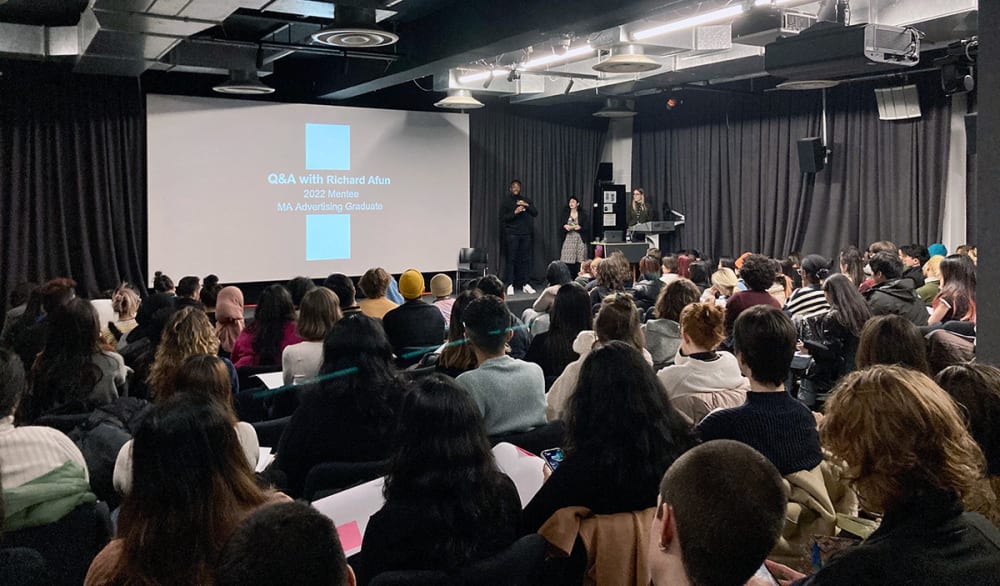
What have been some of your highlights of taking part in the programme?
Richard: Alongside all of the practical advice and guidance that Paul has given me, I also feel as though I’ve become a better listener.
Overall, by gaining insight into how agencies have worked in the past, I’ve become even more informed about the landscape of the present.
Paul: Seeing Richard grow in confidence over his first few months in the advertising world and hearing him describe the satisfaction of being involved in successful pitches has been very rewarding. There’s nothing quite like the excitement of a new business win to motivate.
I’m proud that Richard and I managed to stick to our timescale - even with significant geographical distance between us, which required flexibility from both of us on the timing of sessions and the use of a variety of venues.
I also very much enjoyed the initial session that LCC arranged for mentors to network together.
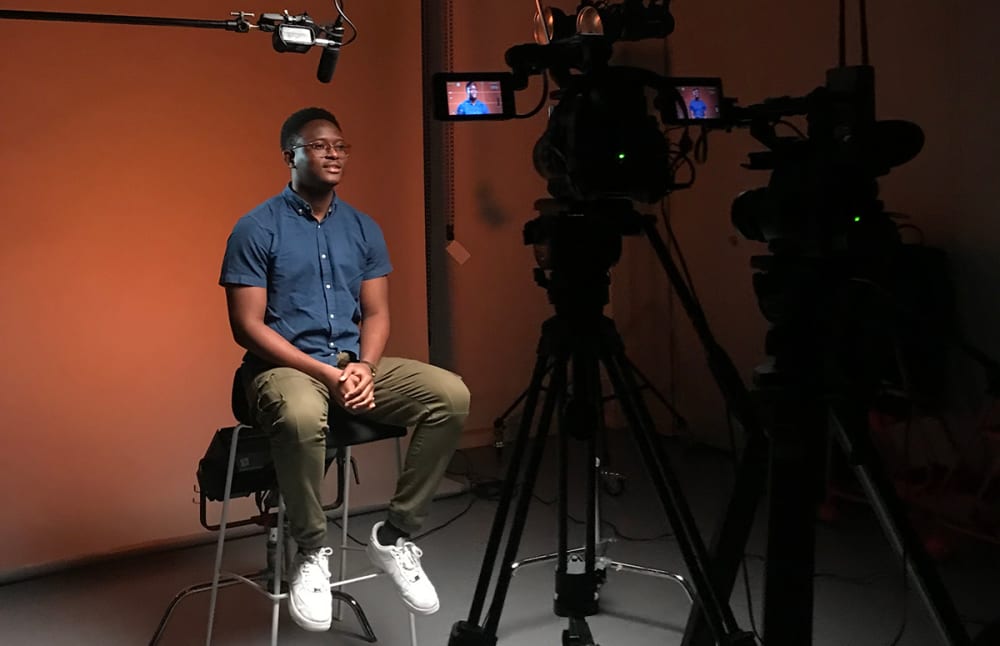
Richard, what are your top tips for other students on how to make the most of the mentoring programme?
I'd say:
- Be a student first and always - be open to taking in new information, and ask lots of questions.
- Be a good listener - you’ll learn a lot by listening critically to your mentor.
- Always show appreciation for your mentor - it goes a long way when they know their efforts are seen, appreciated and impactful.
Paul, why would you encourage other creative practitioners to sign up as mentors?
I’d suggest taking part in the programme to give back - to share your work experiences, both the good and the bad, and also to be open to learning from your mentee.
Ideally, mentoring it should be a two-way process.
Our Industry Mentoring Programme supports LCC students and recent graduates to explore potential career paths in the creative industries and beyond.
If you're a creative professional interested in mentoring with us, find out more and register your interest for our upcoming programme cycle.
Related links:
- Explore our Industry Mentoring Programme.
- Learn more about our MA Advertising course.
- Find out more about the work of our Graduate Futures team.


